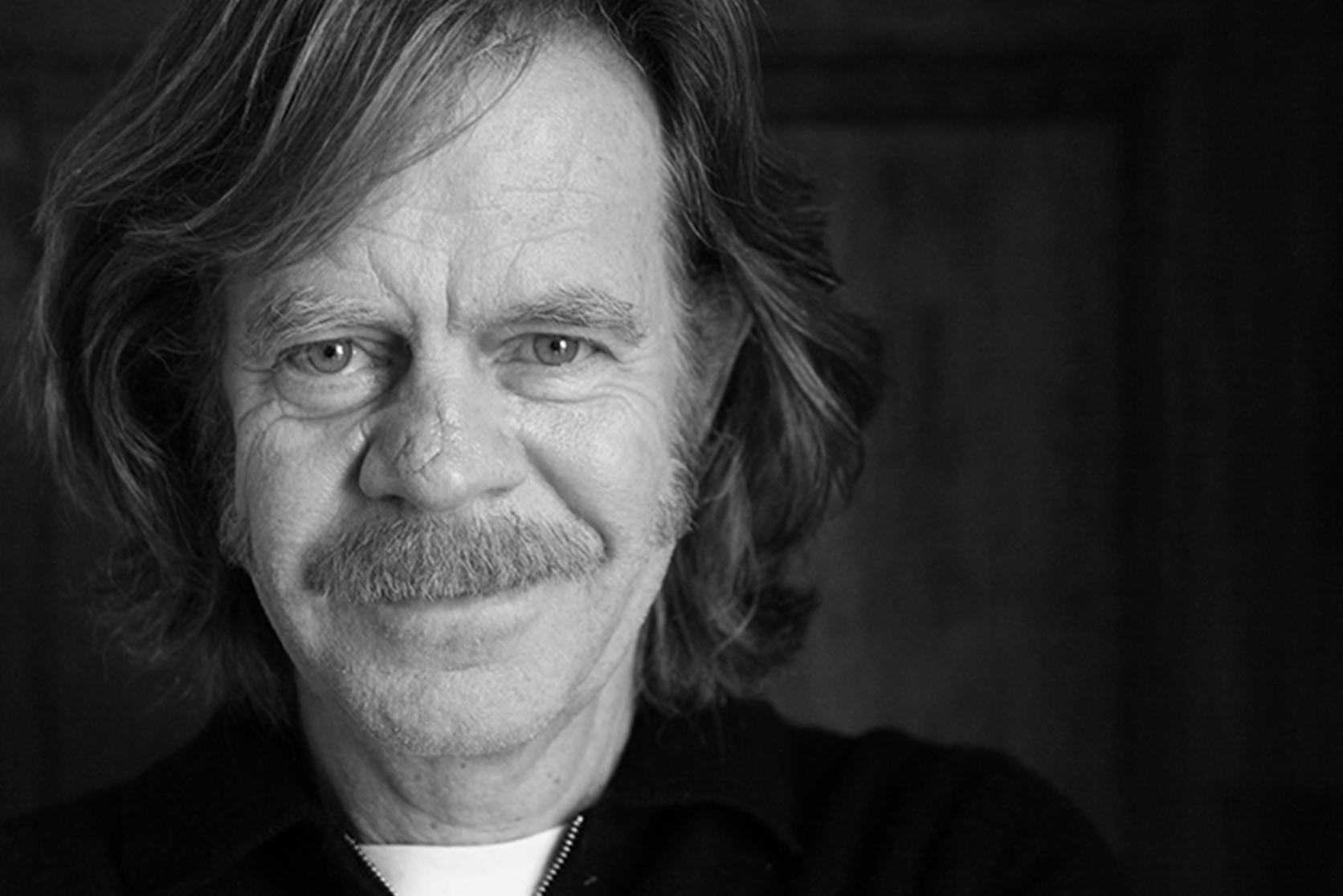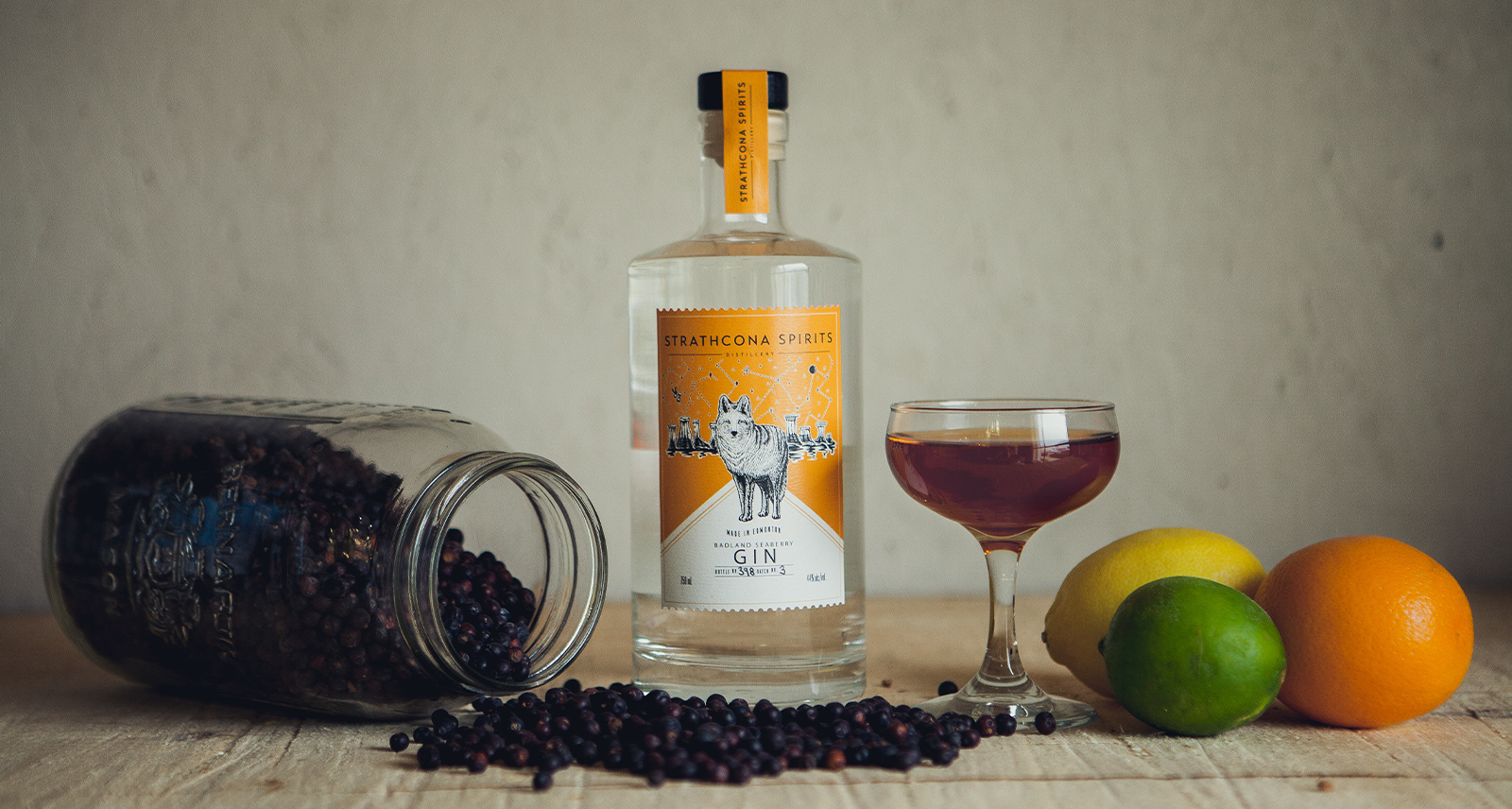William H. Macy Talks ‘Room’, Being Typecast and His Secret to Getting Laid
When you think of pitiful, out-of-luck, in-a-bad-way men, it’s hard not to conjure William H. Macy’s worn-in mug. The workaday actor has carved a career out of playing the saddest of sacks, from a desperately broke car salesman (Fargo) to a cuckolded porn cameraman (Boogie Nights) to a contagiously unfortunate loner (The Cooler). He is the human Eeyore — his hangdog expression, in our cultural consciousness, synonymous with defeat.
Off camera, however, the guy is winning at life. At 65, Macy’s big enough a name to do whatever he likes, whether that’s star as a drunk dad in an Emmy-nominated drama (Shameless) or handpick roles in critically-revered indie flicks (Room). When we speak, he’s between shoots for his second directorial effort, The Layover, a sex comedy starring Lea Michelle and Kate Upton. What’s more, his 17-year union to Felicity Huffman may just be Hollywood’s happiest (and longest) marriage. Turns out some losers do get the girl in the end.
You’re directing your second film, The Layover. And your latest acting role was in Room. Both are independent. Which is funny, because I’ve heard you say you’re not a fan of independent movies.
Look, it’s like a marriage. Well, I say that but then I insult them. [Laughs.] No, independent films are fantastic! And you know what, you can’t kill them. When the recession hit and the whole paradigm of our business moved to TV, independent films took a hit. But it’s roaring back. That’s because people love movies. Television’s great too, but a feature film seems to be the perfect time to tell a story in detail and really let people get invested. It’s addictive. That being said, they’re a heartache! It’s tough making an independent film, especially if you’ve got lots of skin in the game. It’s against the odds. You’re putting out fires all day. Someone recently asked me, ‘What do you think of directing?’ I said I’ve got to learn to control my emotions. I go from great heights of joy to suicidal, and then we break for lunch. And then I repeat it in the afternoon. I’m easier as an actor.
I think you have the right to look at the people making the rules and say, ‘Go fuck yourself.’
So Room is about a mother held captive with her son in a garden shed. She’s extremely protective of her child, and manages to shield him from the harsh truth. How protective are you of your kids?
Boy, she is such a mother. It’s primal how much she protects that boy. What lengths she’ll go to, to give him a happy life. Am I protective? Sure. But it’s more complicated — these are dire circumstances that she finds herself in. It’s beyond imagination. How does my parenting compare to it? I think a lot of people, probably most people, would die— or even kill — for their children. I married very well and my wife is very smart at this. Somebody smart once said, ‘It’s your job to prepare your kids for the road and not the road for your kids.’
At the other end of the parenting spectrum, on Shameless you play Frank Gallagher, an alcoholic father of six children. It’s a more laissez-faire approach.
[Laughs.] Well, the writers on Shameless need therapy. All of them. I mean, the stuff they come up with! It’s delicious to go out of all bounds to play a complete narcissist and a complete liar. There are no rules. And I love the family dynamic of the show. Parenting — we all do it. And slowly but surely the world is starting to take it more seriously. I’ve got two girls and I’m happy for them. It’s a fabulous time to be a girl. Schools are getting hipper, I think. We’re talking about what kids need, not what we’re willing to give them.
Are there any real-life drunks in particular who gave you inspiration?
Yes, in a way. Were there drunks in my family? Absolutely. I think one of the reasons the show works is because everybody says, ‘Oh my god, you think you’re something? Well, my Aunt Gladys…’ Everybody’s got a Frank Gallagher somewhere in the family, so it makes the story even more universal and popular. It’s all too familiar and sometimes too true to be funny.
And I love how real the show is, especially in the way it depicts poverty. It’s not like Roseanne, where being poor is sort of wacky and fun. These are seriously destitute folks, who steal from UNICEF.
Yes! And they’re great characters — these people just do not give up. I really look for that in my heroes: people who won’t say uncle. Because, at the end of the day, sometimes it’s just the person who’s the most determined that carries the pace. These people are hopeful and they’re fighting for something better. There’s a morality to them. They’re at the bottom of the socio-economic ladder, and when you’re in that spot, I think you have the right to look at the people making the rules and say, ‘Go fuck yourself.’
Critics like to call you “the biggest loser in cinema.” Ever since Fargo, you’ve continuously been cast as these hapless characters who always end up with the short end of the stick in the narrative. Why is that?
I don’t know, man. It’s got to be the way I grew up. One thing about Hollywood is if you do something well, they’ll say, “Let’s get him to do that again.” And you get similar roles. If you’re lucky, you get different kinds of roles. I think it’s the way I was born, the way I was raised, background — all that kind of stuff. It’s beyond my control. Brad Pitt happened to be born perfect and talented, so fuck him. They’ll always tell him, “You be the hero…and Macy, the cook is the funny role. He gets dropped in a vat of lard, it’s just hysterical.” Everyone plays their part.
Were you ever worried about getting pigeonholed into that loser role?
Oh, sure.
If I’m best known for playing the everyman who is in over his head, that’s a noble hat to wear.
How does one escape that?
Perhaps you don’t. If you want to, there are a lot of ways to refuse to ever do that thing again. It’s hard to pay the rent with that kind of attitude, but it’s bold and it’s noble, I guess. I just ride the horse in the direction it’s going. I didn’t get pigeonholed. But if I’m best known for playing the everyman, who is in over his head, that’s a noble hat to wear. A part of growing up is saying, “Never say never.” So I got to a point where I said, “Okay, that’s it. No more of these loser roles.” Then, in 2003, they sent me a script called The Cooler and I said, “No way.” But thank god they kept pursuing and cooler heads prevailed. It was a great role for me and he’s the quintessential loser. Not to do something that’s in your wheelhouse is stupid. I am what I am.
Well, in many ways, you’re also a winner. You’ve got arguably the most successful marriage in Hollywood. I hear you still stand up every time Felicity enters the room.
That’s true. It was a promise I made, a wedding vow. It’s hard to remember sometimes, but it’s very effective. All you men out there: if you want to get lucky, stand up when she comes to the table. Also, all you young men: take off that stupid fucking hat.
Great advice! There’s been much talk about the Death of Monogamy lately. They say the high divorce rate and the popularity of things like Ashley Madison or Tinder are signs that monogamy is a failed social experiment. What do you think?
I think we have roots that go way, way back to feeling guilt and shame about sex. You know, the church tried to control sex. Your parents tried to control sex. The times shift and tell us what we are, sexually. The more we let it out, the healthier we will be. I think prohibition doesn’t work and makes things look better than they actually are. But monogamy is not going to die out. We want to know our lineage and we always will. And it’s a great thing – it has benefits that jumping around can’t compare to. I think to myself, “At this age? Single? Out there trying to get laid?” It makes me sick to my stomach. (Laughs.) I’ve felt that way for a long time. When you give yourself to someone it has other benefits. There’s safety in it. And if you work at it a little bit, and you both try to stay sexy, it’s a great thing to do. It’s not necessary for the survival of the species, but it’s great fun. If you don’t want to do it, don’t do it. I love being married. I fucking love it.










